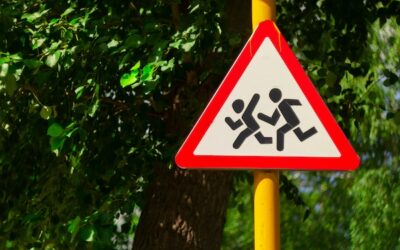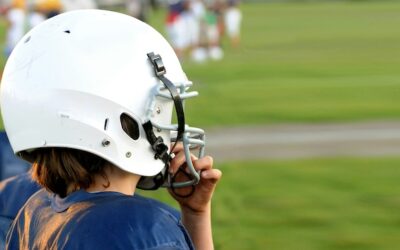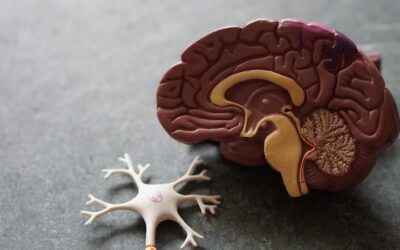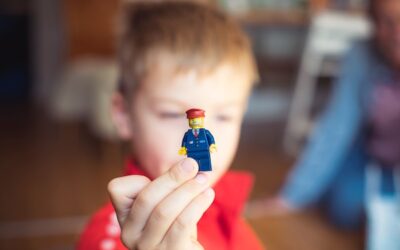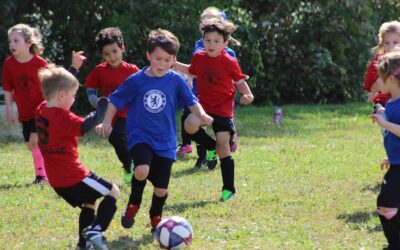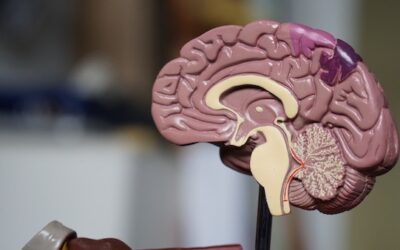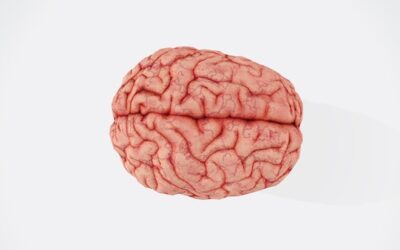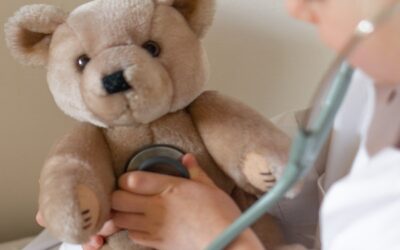Media
Want to better understand
mental health in students?
We can help.

Family And Media Pressure to Lose Weight in Adolescence Linked To How People Value Themselves Almost Two Decades Later
Experience of weight stigma is a major public health issue: people affected by weight stigma are more likely to have poor mental health, eating disorders and may delay seeking medical treatment.
The Joy of Sports: How Watching Sports Can Boost Well-Being
Watching sports, particularly at large gatherings, goes beyond entertainment. It fosters a sense of community and belonging among audiences.
Teen Stress May Raise Risk of Postpartum Depression In Adults
In a new study, a Johns Hopkins Medicine-led research team reports that social stress during adolescence in female mice later results in prolonged elevation of the hormone cortisol after they give birth.
Take It from The Rats: A Junk Food Diet Can Cause Long-Term Damage To Adolescent Brains
A new USC-led study on rats that feasted on a high-fat, sugary diet raises the possibility that a junk food-filled diet in teens may disrupt their brains’ memory ability for a long time.
Physical Activity Reduces Stress-Related Brain Activity to Lower Cardiovascular Disease Risk
New research indicates that physical activity lowers cardiovascular disease risk in part by reducing stress-related signaling in the brain.
School Suspensions and Exclusions Put Vulnerable Children at Risk
New research reveals that exclusionary practices not only fail to identify the deep-rooted causes of challenging student behaviors but exacerbate negative issues rather than resolve them.
Choosing Sugary Drinks Over Fruit Juice for Toddlers Linked to Risk Of Adult Obesity
Children who drank fizzy drinks such as cola or sugar-sweetened fruit cordials before the age of two gained more weight when they were 24 years old.
People Who Use Willpower Alone to Achieve Goals, Resist Temptation, Deemed More Trustworthy
People who use willpower to overcome temptations and achieve their goals are perceived as more trustworthy than those who use strategies that involve external incentives or deterrents — such as swear jars or internet-blocking apps.
After Being Insulted, Writing Down Your Feelings on Paper Then Getting Rid Of It Reduces Anger
This research is important because controlling anger at home and in the workplace can reduce negative consequences in our jobs and personal lives.
More Synchrony Between Parents and Children Not Always Better
A new University of Essex study looked at behavioral and brain-to-brain synchrony in 140 families with a special focus on attachment.
People Make More Patient Decisions When Shown the Benefits First
If you had to decide whether to receive $40 in seven days or $60 in 30 days, which would you choose? Your answer could have less to do with whether you are a patient or impatient person than with how the choice is presented
Early Detection of Language Disorders Helps Children Obtain Right Interventions
New screening tools in child health care are effective in identifying early language and communication difficulties in children.
Concern For Others Emerges During Second Year of Life
Infants are moved by the feelings of others, such as fear or grief, from an early age, beginning around 18 months.
Apology Psychology: Breaking Gender Stereotypes Leads to More Effective Communication
From social media to the workplace, non-stereotypical apologies can help repair trust, according to new research outlined in this article.
Trajectories of Loneliness During Adolescence Predict Subsequent Symptoms of Depression and Positive Wellbeing
This article tracks the evolution of loneliness during adolescence and its implications on mental health, specifically depression and positive wellbeing.
Longitudinal Associations Between Support and Prosocial Behavior Across Adolescence: The Roles of Fathers, Mothers, Siblings, and Friends
This research tracks the evolution of prosocial behavior in relation to the autonomy and emotional support provided by key figures in an adolescent’s life—parents, siblings, and friends.
Social Media Posts from Friends during Late Adolescence as Predictors of Young Adult Physical Health
This article explores the longitudinal impact of social media experiences during late adolescence on physical health outcomes in young adulthood.
Identity Matters for Well-Being: The Longitudinal Associations Between Identity Processes and Well-Being in Adolescents with Different Cultural Backgrounds
This study explores the intricate relationship between identity formation and well-being in adolescents, emphasizing the varying cultural contexts.
Unravelling the Roots of Emotional Development: Examining the Relationships Between Attachment, Resilience, and Coping in Young Adolescents
This study delves into the complex interplay between attachment styles, resilience, and coping mechanisms in adolescents.
Association between Weight, Weight Perception, Weight Teasing and Mental Health among Adolescents
This study underscores the need for interventions that foster a healthy body image among adolescents and also actively combat weight teasing.
Time Balance and Family Functioning: The Role of Time Perspective in the Cohesion and Adaptability of Families with Adolescents
The study explores how parents’ perspective of time—past positive, past negative, future, present hedonistic, and present fatalistic—correlates with family cohesion and adaptability.
The Interaction Between Adolescent Cyber Dating Abuse and Parenting on Mental Health Outcomes
This study explores the protective role of parent-child relationship quality against the negative mental health effects of cyber dating abuse (CDA) among adolescents.
Study Reveals New Genetic Link Between Anorexia Nervosa and Being an Early Riser
New research indicates that the eating disorder anorexia nervosa is associated with being an early riser, unlike many other disorders that tend to be evening-based such as depression, binge eating disorder and schizophrenia.
SPARKing New Insight into Autism Across the Lifespan
Programs like SPARK aim to gather comprehensive data on individuals with autism and genetically defined neurodevelopmental conditions, respectively, to inform clinical care and facilitate the development of effective treatments.
Sleep Apnea Symptoms Linked to Memory and Thinking Problems
Researchers found that people who reported sleep apnea symptoms were about 50% more likely to also report having memory or thinking problems compared to people who did not have sleep apnea symptoms.
Self-, Other-, And Dual-Harm During Adolescence: A Prospective-Longitudinal Study of Childhood Risk Factors And Early Adult Correlates
This study examines the prevalence, childhood risk factors, and early adult correlates of self-harm, other-harm, and dual-harm (the co-occurrence of self- and other-harm) among adolescents.
Peer Pressure Susceptibility Lasts into Adulthood
While ‘peer pressure’ is often linked to experiences of children or teenagers, researchers say young adults continue to succumb to similar pressures of social conformity in everyday situations.
Parental Involvement in Stepfamilies: Biology, Relationship Type, Residence, And Gender
This article underscores the significance of biological relatedness, type of relationship, and the child’s residence as key determinants of parental involvement in stepfamilies.
More Intense Exercise Reduces Post-Concussion Anxiety in Teens
Patients commonly believe that they should be sedentary and avoid physical activity altogether after experiencing a concussion, but a growing body of research points to that not being necessary in many cases.
Mental Health Problems Among Adolescents with Mild Intellectual Disability and Relation to Sleep Quality and Perceived Social Support: A Comparative Study
This study investigates the mental health issues prevalent among adolescents with mild intellectual disabilities, focusing on the influence of sleep quality and perceived social support.
Lack Of Focus Doesn’t Equal Lack of Intelligence — It’s Proof of An Intricate Brain
This new study brings detailed insights into the brain mechanisms that help people pay attention amid distraction, as well as what’s happening when they can’t focus.
Is History of Abuse Predictive of Eating Disorders With Binge-Eating Episodes Through An Effect Mediated By Impulsivity?
The study suggests that while a history of abuse does not directly impede recovery from EDBE, the presence of anxiety disorders and certain impulsive behaviors may.
Grieving the Loss of a Child and the Use of Online Social Support: An Exploratory Survey Study
Participants accessing online grief supports more frequently reported higher levels of emotional support, suggesting the potential benefits of online communities in providing solace and connection.
Exposure Therapy to Feared Foods May Help Kids With Eating Disorders
They found that exposure to feared foods — such as candy bars and pizza — helped kids who were in a partial hospitalization program for eating disorders experience decreased anxiety toward food.
Early Vocabulary Size Is Genetically Linked To ADHD, Literacy, And Cognition
In a genome-wide analysis, an international research team found genetic associations between children’s early vocabulary size and later-life ADHD, literacy, and general cognition.
Concussion Exposure and Suicidal Ideation, Planning, and Attempts Among US High School Students
This study investigates the association between the frequency of self-reported concussions and nonfatal suicidal behaviors among youth.
Children’s Experiences of Stress in Joint Physical Custody
This study explores the impact of joint physical custody (JPC) and sole physical custody (SPC) arrangements on children’s stress levels.
Cannabis Use Linked to Increase in Heart Attack and Stroke Risk
More frequent use of cannabis was associated with higher odds of adverse cardiovascular outcomes, finds new study.
Avid Appetite in Childhood Linked to Later Eating Disorder Symptoms
An enthusiastic response to food in early childhood may be linked to a higher likelihood of experiencing eating disorder symptoms in adolescence.
Anorexia Nervosa in Adolescent Males
This study provides valuable insights into anorexia nervosa among adolescent males, a demographic often overlooked in discussions about eating disorders.
Looking For Love? Try Finding Purpose as Well
The world of online dating can be overwhelming with the dizzying array of options for attracting a partner but new research shows that those looking for love may have more success if they also seek a sense of purpose in life.
Researchers Find Early Symptoms of Psychosis Spectrum Disorder In Youth Higher Than Expected
The goal of the cohort study is to better understand the populations of youth seeking mental health treatment, how their mental health symptoms and functioning change over time, and whether early predictors of psychosis spectrum disorder can be determined.
Asthma Rates Climb for High School Students as Cannabis Use Increases
Asthma is more common among high school students who use cannabis, relative to those who do not and the prevalence of asthma increases with the frequency of its use among the students.
About 22 High School Age Adolescents In U.S. Died Each Week From Overdoses In 2022, Driven By Fentanyl-Laced Prescription Pills
The death count equals a high school classroom each week, and is now the third largest cause of pediatric deaths behind firearm-related injuries and motor vehicle collisions.
Poor Diet Quality During Adolescence Is Linked to Serious Health Risks
Diet quality among adolescents in the United States is among the worst across all age groups, putting young people at risk for heart attack, stroke, and diabetes, among other cardiometabolic diseases later in life.
Potential Link Between High Maternal Cortisol, Unpredicted Birth Complications
Cortisol, a steroid hormone, rises in humans to help regulate the body’s response to stress. Finding ways to reduce stress around birth could help improve outcomes for both infants and mothers, the researchers said.
Healthy Diet Early in Life Seems To Protect Against Inflammatory Bowel Disease
Having a high dietary intake of fish and vegetables at 1 year of age, and a low intake of sugar beverages, seems to protect against inflammatory bowel disease.
Study Suggests Secret for Getting Teens to Listen to Unsolicited Advice
In the study, the teens of of autonomy-supporting parents perceived advice they sought from the parent as helpful. But these teens considered unsolicited advice equally as helpful.
Cognitive Behavioral Therapy Alters Brain Activity in Children with Anxiety
“We know that CBT is effective. These findings help us understand how CBT works, a critical first step in improving clinical outcomes,” said senior author Melissa Brotman, Ph.D..
Supportive, Stable Caregiving in Childhood Protects Heart Health In Adulthood
Findings suggest that supportive and, importantly, stable caregiving may have a stronger influence on later heart health than early adversity.
How Does Social Attention Develop In Autistic Children?
From the very beginning of their lives, newborns show fascination for faces and face-like configurations, especially moving ones. This fundamental, widely shared social attention can, however, be impaired in children with autism spectrum disorders (ASD).
Acetaminophen Use During Pregnancy Linked to Language Delays In Children
The analysis linked acetaminophen use in the second and third trimesters of pregnancy to modest but significant delays in early language development.
Early Body Contact Develops Premature Babies’ Social Skills
“If we combine the immediate medical care of the very premature babies with a relatively simple intervention such as skin-to-skin contact, it has effects on the infants social skills.” says Jonas Wibke.
When Dads Are Feeling a Bit Depressed or Anxious, How Do Kids Fare?
Studies have generally found that high levels of anxiety and depression in parents are linked to poorer behavioral and cognitive outcomes in children.
Young Children Do Better at School If Their Dads Read and Play with Them
The researchers recommend that dads carve out as much time as they can to engage in interactive activities with their children each week.
First-Time Fathers Seem to Experience A Steeper Decline In Relationship Satisfaction In The First Two Years Post-Partum Than Second Time Fathers
Fathers becoming parents for the first time should be prepared for expected changes in their relationship — and know that, should they choose to have another child, the changes a newborn brings will likely be easier to weather.
Should Fathers Be Screened for Postpartum Depression? Pilot Study
Given the intertwined effects of mothers’ and fathers’ physical and mental health, addressing the health of fathers may be a powerful untapped tool in improving the nation’s ongoing maternal health crisis.
When Fathers Exercise, Children Are Healthier, Even as Adults
Men who want to have children in the near future should consider hitting the gym. A new study investigates how a father’s exercise regimen would affect his offspring’s metabolic health.
More Siblings Mean Poorer Mental Health for Teens
Teens from larger families have poorer mental health than those with fewer siblings, according to a large analysis of children in the United States and China.
The Development of Gender Role Attitudes During Adolescence: Effects of Sex, Socioeconomic Background, and Cognitive Abilities
The study confirmed that sex differences play a substantial role in developing gender role attitudes, with females generally exhibiting more egalitarian views than males. Socioeconomic status and cognitive abilities also influenced these attitudes.
Skin-Deep Resilience: Hidden Physical Health Costs for Minority Youth Overcoming Adversity
Overcoming adversity may have a hidden physiological cost, especially for minority youth. A new study from the University of Illinois Urbana-Champaign looks at physiological changes among high-striving minority youth in early adolescence.
Seizures Identified as Potential Cause of Sudden Unexplained Death In Children
In a study designed to better understand sudden, unexpected deaths in young children, which usually occur during sleep, researchers have identified brief seizures, accompanied by muscle convulsions, as a potential cause.
Romantic Relationships in Young Adulthood: Parental Divorce, Parent-Child Relationships During Adolescence, And Gender
The study examined how adolescent parent-child relationships mediate the impact of parental divorce on children’s later romantic relationships, particularly noting gender differences.
Resilience And Adolescent’s Psychological Well-Being
Resilience, an ordinary yet essential aspect of human resources, is critical in dealing with adversity, stress, and challenges. Understanding the relationship between resilience and well-being not only expands our knowledge but also promotes individuals’ psychological well-being.
Psychological Distress, Self-Harm and Suicide Attempts In Gender Minority Compared With Cisgender Adolescents In The UK
The study aimed to compare reports of psychological distress, behavioral and emotional difficulties, self-harm, and suicide attempts between gender minority and cisgender adolescents.
Profiles of Adolescents who Abuse their Parents: A Gender-based Analysis
This study highlights the different experiences and psychosocial factors that lead boys and girls to adolescent-to-parent violence.
Perceived Strengths And Difficulties In Emotional Awareness And Accessing Emotion Regulation Strategies In Early Adolescents
The research found that the relationship between Emotional Awareness and Emotional Regulation is not straightforward and varies across different clusters of adolescents.
Patterns Of Experience, Expression, And Physiology of Stress Relate To Depressive Symptoms And Self-Injurious Thoughts And Behaviors In Adolescents: A Person-Centered Approach
The study concludes that multi-level patterns in stress responding can capture risks for dysfunction, including depression and self-injurious thoughts and behaviors.
Parent-Child Discrepancy in Educational Aspirations and Depressive Symptoms in Early Adolescence: A Longitudinal Study
This study is significant in understanding the role of educational aspirations in adolescents’ psychological adjustment, especially considering parent-child discrepancies.
“I Wanted to Hide But Also To Be Found”: The High School Experiences Of Young Adults Who Grew Up In The Same Home As A Sibling With Depression
The study delves into how these circumstances affected their emotional well-being, academic success, and relationships both inside and outside of school.
Gender Differences in the Effects of Academic Achievement on Depressive Symptoms During Adolescence
There is a reciprocal relationship between academic achievement and depression, where depressive symptoms predicted lower GPA scores across the sixth to ninth grades in girls, not boys.
Exploring Adolescents’ Occupational Possible Selves: The Role of Gender And Socioeconomic Status
The study involved a survey of 3,336 middle school students who reported their hoped-for occupations, the desire for these occupations, the likelihood of achieving them, and any actions taken towards these goals.
Does Parenting Moderate the Association Between Adverse Childhood Experiences and Adolescents’ Future Orientation?
The study underscores the importance of considering both the quality of parenting and the experience of adversity in understanding adolescents’ future orientation.
Do Different Traumatic Events Invoke Different Kinds of Post-Traumatic Stress Symptoms?
This article examines how different traumatic events influence the manifestation of Post-Traumatic Stress Symptoms (PTSS) in children and adolescents.
Challenges And Opportunities In The Diagnosis And Treatment Of Early-Onset Psychosis: A Case Series From The Youth Affective Disorders Clinic In Stockholm, Sweden
The cases focus on individuals initially misdiagnosed with less severe conditions such as emotionally unstable personality disorder, autism, and ADHD, which led to delays in appropriate treatment.
Barriers To Seeking Psychotherapy for Mental Health Problems In Adolescents: A Mixed Method Study
The study explores the discrepancy between the high prevalence of mental disorders in adolescents and the relatively low rate at which they seek psychotherapy.
Adverse Outcomes of Cannabis Use In Canada, Before And After Legalization Of Non-Medical Cannabis
While the likelihood of an individual experiencing adverse events remained stable, the overall number of adverse events might have increased due to the rise in cannabis use.
Adverse Childhood Experiences and Depression: The Mediating Role of Resilience and Emotional Regulation
Individuals who experienced childhood trauma may benefit from interventions focused on strengthening resilience and improving coping strategies.
Reducing Social Media Use Significantly Improves Body Image in Teens, Young Adults
Teens and young adults who reduced their social media use by 50% for just a few weeks saw significant improvement in how they felt about...
Personality, Satisfaction Linked Throughout Adult Lifespan
Many studies have shown that people with certain personality profiles are more satisfied with their life than others.
Parental Engagement Positively Associated with Safer Driving Among Young People
Greater parental monitoring leads to more anxiety, but also more caution.
More Than 4 Hours of Daily Smartphone Use Associated with Health Risks For Adolescents
This usage may be associated with higher risk of adverse health such as psychiatric disorders, sleep issues, eye-related problems, and musculoskeletal disorders.
Increased Risk of Depression and Anxiety When in Higher Education
A research paper is the first to find evidence of higher levels of depression and anxiety among higher education students compared with their peers.
Feeling Loved, Optimistic or Happy As A Teen May Lead To Better Health In Adulthood
Teenagers who reported feeling optimism, happiness, self-esteem, belongingness, and feeling loved and wanted were more likely to reach their 20s and 30s in good cardiometabolic health.
Faith In God Positively Influences Treatment for Individuals with Psychiatric Illness
Belief in God may significantly improve the outcome of those receiving short-term treatment for psychiatric illness.
‘I’d Rather Not Know’: Why We Choose Ignorance
When given the choice to learn how their actions will affect someone else, 40% of people will choose ignorance.
High Levels of Maternal Stress During Pregnancy Linked To Children’s Behavior Problems
Providing widely accessible mental health care and support during pregnancy may be a critical step to help prevent childhood behavior problems.
Formerly Depressed Patients Continue to Focus on Negative
People who have a history of depression spend more time processing negative information than positive information.
Even A Joyous Holiday Season Can Cause Stress for Most Americans
U.S. adults are feeling joyous but overwhelmed this holiday season, according to results of a new poll.
Depression, Anxiety Common Among College Students
Students who were not the majority race at a predominantly white college reported significantly higher rates of depression than their white peers.
Children’s Brains Shaped by Their Time on Tech Devices, Research To-Date Shows
Time spent watching television or playing computer games has measurable and long-term effects on children’s brain function.
Adversity Accelerates Epigenetic Aging in Children with Developmental Delays, But Positive Parenting Can Reverse Course
Positive parenting programs can help children exposed to hardships turn back the clock and build biologically based resilience.
Addicted To Your Phone? New Tool Identifies Overuse of Digital Media
A new tool will make it easier for clinicians and researchers to measure digital media addiction as new technologies emerge.
Why Parental Pressures Are Taking the Fun Out of Children’s Play
Today’s youngsters are spending less time playing together away from adult care and more time under parental supervision.
When Dads Are Feeling a Bit Depressed or Anxious, How Do Kids Fare?
Slightly higher levels of depressive symptoms reported by fathers when their partner was pregnant were associated with fewer behavioural and emotional difficulties in their child at about six to eight years of age.
Video Game Playing Causes No Harm to Young Children’s Cognitive Abilities
Research also saw no measurable benefits from video games that claim to help kids’ development.
Screen Time Linked to OCD In U.S. Preteens
During the holidays, kids often spend more time on screens, leaving parents to wonder: Is it causing harm? Possibly.
Researchers Map Converging Trajectories of Cognitive Development Through Adolescence
At what age does an adolescent start thinking as an adult? A new study presents some of the first definitive evidence that executive function usually matures by the time an individual turns 18 years old.
Physical Fitness Since Childhood Predicts Cerebellar Volume in Adolescence
This study examined the associations of physical fitness with grey matter volume of cerebellar lobules related to cognition in adolescents.
Mothers Experiencing Depression Can Still Thrive as Parents
One researcher explores how external supports offset the risks to children’s health posed by maternal depression.
Perils Of Not Being Attractive or Athletic In Middle School
Despite the many changes in school culture since the 1960s, a new study reveals that some things never change: life is harder for middle school students who are not attractive or athletic.
Trauma, Severe Stress in Childhood Linked to Criminal Legal Involvement in Next Generation
The children of parents who experienced adverse childhood experiences – such as abuse, neglect, violence in the home, or loss of a parent — are at increased risk of arrests and convictions by young adulthood.
Marijuana Use May Damage Brain Immune Cells Vital To Adolescent Development
In a mouse study designed to explore the impact of marijuana’s major psychoactive compound, THC, on teenage brains, researchers say they found changes that may worsen a genetic predisposition to schizophrenia.
Less Physical Activity In Adolescence Likely Rooted In Biology
The slowdown of physical activity during adolescence is not likely caused by lifestyle and environment but by energy demands placed on the body as it grows and sexually matures.
How Parents’ Work Stress Affects Family Mealtimes and Children’s Development
Family mealtimes are important for parents and children as a space to communicate, socialize, and build attachment relationships. But it can be difficult for busy parents to balance family and work life.
Higher Risk Of 17 Cancers After High BMI In Late Teens
Men who are overweight or obese at age 18 have a higher risk of 17 different cancers later in life.
Healthy Development Thanks to Older Siblings
“Children who have older brothers or sisters in their households are less likely to develop problems,” explains Gunda Herberth (UFZ), coordinator of the LINA study.
Early Treatment of Child Obesity Is Effective
The researchers followed over 170 young children in Sweden who had received treatment for diagnosed obesity.
Does Suspending Kids from School Harm Their Grades And Health?
Being suspended from school or sent to the office is tied to a big drop in grade point average (GPA), especially for Black and Latinx children.
Conflict In Marriage Less Harmful for Kids When Dad Keeps It Constructive
The way parents, especially fathers, deal with marital conflict can make a difference to kids, according to a new study.
Children As Young as Four Eat More When Bored
Children’s eating behaviour is shaped by their genetics, temperament, and a range of other factors, including the feeding practices they experience.
Childhood Trauma Linked to Headaches In Adulthood
They also found that as the number of traumatic childhood events increased, the odds of having headaches also increased.
Certain Online Games Use Dark Designs to Collect Player Data
While online gaming can improve wellbeing and foster social relations, privacy and awareness issues could potentially offset these benefits and cause real harm to gamers.
Painful Shyness in Children and Adults
Avoidance and inhibition in particular create problems for the painfully shy and for those around them.
Researchers Find Ways To Help Teens Get More Sleep
Providing time management tools and addressing barriers to an earlier bedtime, like limiting certain after-school activities, could help teens.
Perfectionists May Be More Prone To Helicopter Parenting
Perfectionist parents may see their children’s success as a reflection on them and they may engage in over-parenting to achieve “perfect” results.
Parents Of Elementary-Aged Children May Engage In More Helicopter Parenting Than They Think
There might be a gap between what parents say about fostering children’s independence and what tasks they let their kids do without them.
Parents Aren’t Powerless When It Comes To Sleep-Deprived Teenagers
A simple and timeworn solution yields solid results: a clear bedtime that parents consistently adhere to.
Up To 19% Of Teens Experience Dating Violence
When adolescents start to explore dating, romance, and sex, a troubling number fall victim to violence.
Treating Childhood ADHD With Stimulant Meds Not Associated With Increased Substance Use Later In Life, Study Finds
The study may provide some reassurance to parents and clinicians who may be hesitant to prescribe ADHD stimulant medications.
Study Reveals Shyness Could Impact Young Children’s Performance on Language Tests
Depending on the level of social interaction required to complete the test, shyness can influence a child’s performance in language assessments.
Social Media Use Increases Depression And Loneliness, Study Finds
he first experimental study examining multiple platforms shows a causal link between time spent on social media and increased depression and loneliness.
Risky Decisions: Excessive Social Media Use Is Comparable To Drug Addiction
New research shows a connection between social media use and impaired risky decision-making, commonly deficient in substance addiction.
Losing A Grandmother May Trigger Rise In Depression For Some Of Her Survivors
Losing a beloved family member is never easy, but a new study suggests the loss of a grandmother may have repercussions for the loved ones she leaves behind.
Insufficient Sleep In Teenagers Is Associated With Overweight And Obesity
Adolescents who sleep less than eight hours a night are more likely to be overweight or obese compared to their peers with sufficient sleep.
Inflammatory Signs For Adolescent Depression Differ Between Boys And Girls
New research has found that depression and the risk of depression are linked to different inflammatory proteins in boys and girls.
Helping Adolescents To Feel Competent And Purposeful — Not Just Happy — May Improve Grades
Encouraging adolescents to feel capable and purposeful — rather than just happy — could improve their academic results and mental health, according to new research that recommends changing how wellbeing is supported in schools.
Harsh Discipline Increases Risk of Children Developing Lasting Mental Health Problems
New research shows that harsh discipline from parents puts young children at greater risk of developing lasting mental health problems.
Four Eating Behavior Patterns of Children
Children fall broadly into four eating categories, according to new research, and parents feed their children differently depending on those categories.
Fewer Teens Now Perceive Themselves As Overweight — International Study Of More Than 745,000 Adolescents
A study involving more than 745,000 adolescents from 41 countries across Europe and North America identified an increase in teenagers who underestimate their body weight.
Cutting Back On Social Media Reduces Anxiety, Depression, Loneliness
Researchers found college students who tried to cut their social media use to 30 minutes per day scored significantly lower for anxiety, depression, loneliness, and fear of missing out at the end of the two-week experiment and when compared to the control group.
Born Bashful
As psychologists learn more about the factors that determine where a child falls along the shyness spectrum, they’re also finding ways to prevent bashfulness from becoming a setback.
Better Ways to Combat Anxiety In Youth
“There have been enormous advancements in the last 50 years in terms of recognizing anxiety disorders and developing evidence-based, first-line treatments for them,” says David H. Barlow, PhD.
Children Notice Race Several Years Before Adults Want to Talk About It
Adults in the United States believe children should be almost 5 years old before talking with them about race, even though some infants are aware of race and preschoolers may have already developed racist beliefs.
What Neuroscience Tells Us About the Teenage Brain
There is growing recognition that what was previously seen as immaturity is actually a cognitive, behavioral, and neurological flexibility that allows teens to explore and adapt to their shifting inner and outer worlds.
Certain Personality Traits Associated with Cognitive Functioning Late in Life
People who are organized, with high levels of self-discipline, may be less likely to develop mild cognitive impairment as they age, while people who are moody or emotionally unstable are more likely to experience cognitive decline late in life.
Research Roundup: Anxiety Disorders in Youth
In this roundup, read 5 studies that give practical implications for youth with anxiety disorders, their parents, and those providing treatment.
Bullying: What We Know Based On 40 Years of Research
A special issue of American Psychologist® provides a comprehensive review of over 40 years of research on bullying among school age youth, documenting the current understanding of the complexity of the issue and suggesting directions for future research.
Research On Creativity And The Arts
Research on the link between the arts, creativity, and mental health reveal new findings. This includes that drawing improves children’s moods by helping to distract them, and more.
Anxiety During Pregnancy Can Lead To Earlier Births, Study Finds
The study, which examined the relationship between pregnancy length and different measures of anxiety, could help doctors understand when and how best to screen for anxiety during pregnancy to help prevent preterm birth.
Taking a Walk May Lead to More Creativity than Sitting
When the task at hand requires some imagination, taking a walk may lead to more creative thinking than sitting, according to research published by the American Psychological Association.
Experiencing Childhood Trauma Makes Body and Brain Age Faster
Children who suffer trauma from abuse or violence early in life show biological signs of aging faster than children who have never experienced adversity, according to research published by the American Psychological Association.
Why Stress and Anxiety Aren’t Always Bad
While both stress and anxiety can reach unhealthy levels, psychologists have long known that both are unavoidable — and that they often play a helpful, not harmful, role in our daily lives.
Lengthy Screen Time Associated with Childhood Development Delays
How much is adequate screen time for a child? A recent cohort study has found that the amount of screen time spent by one-year-olds is associated with developmental delays.
School Bullying Linked to Lower Academic Achievement, Research Finds
24 percent of the children in a recent study suffered chronic bullying throughout their school years, which was consistently related to lower academic achievement and less engagement in school.
Treating Bipolar Disorder in Kids and Teens
Of the nearly 11,000 articles on bipolar disorder in children and adolescents, more than 90% have been published in the last 15 years—after most practitioners were trained and licensed.
Teaching Resilience, Sense of Purpose in Schools Can Prevent Depression, Anxiety and Improve Grades, According to Research
Teaching children how to be more resilient along with regular classroom instruction can improve children’s outlook on life, curb depression and boost grades.
High-Quality Child Care Contributes to Later Success In Science, Math
Children who receive high-quality child care as babies, toddlers and preschoolers do better in science, technology, engineering and math through high school, and that link is stronger among children from low-income backgrounds.
Adolescents’ Perceived Importance of Religion Found to Lessen Their Drug Use
When adolescents perceive religion as important in their lives, it may lower rates of cigarette smoking, heavy drinking and marijuana use, according to a study that tracked urban adolescents from middle school through high school.
Religion or Spirituality Has Positive Impact on Romantic/Marital Relationships, Child Development, Research Shows
Adolescents who attend religious services with one or both of their parents are more likely to feel greater well-being while romantic partners who pray for their “significant others” experience greater relationship commitment.


























